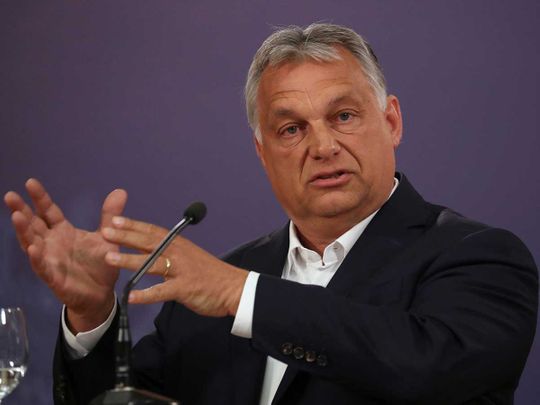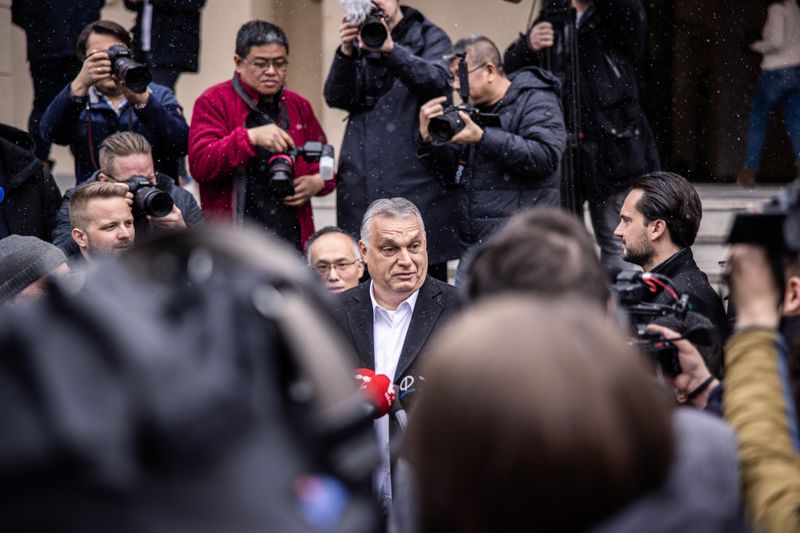
Last week, this year’s Conservative Political Action Conference (CPAC) was held in Dallas, Texas. A straw poll among attendees found that 69 percent support Donald Trump for another presidential run in 2024.
Trump gave a 2-hour-long concluding keynote and though he did not announce his 2024 run, repeated his usual diatribe that the 2020 election was stolen from him. He got some of his most thunderous applause of the night when he proposed to abolish the Department of Education.
Though the final day of the CPAC was overwhelmingly planned to showcase the Republican party’s de facto leader, this year’s CPAC got global attention for inviting Hungarian Prime Minister Victor Orbán to speak at the Convention.
Orbán spoke last Thursday, only a week after his highly controversial speech on European immigration in an event in Romania that was described by his longstanding advisor as a “pure Nazi speech” before resigning in protest.
Victor Orbán traveled to the US for the CPAC but didn’t meet President Joe Biden. Instead, he played golf with Trump in New Jersey before coming to Dallas. His arrival on the CPAC convention stage received a bigger welcome than even the Governor of the host state, Texas.

Orbán is the new hero of the global movement of right-wing populism. He provides a role model for other right-wing populists can achieve to capture power of a country for a prolonged period, not by using force but by gaining an electoral majority.
Victor Orbán became the youngest Prime Minister in Europe at the age of 35 in 1998 and headed a right-wing coalition in Hungary for four years before being voted out in 2002. He also lost the election in 2006. But, after being elected again as the Prime Minister of Hungary in 2010, he has not lost any election.
He overwhelmingly won this year’s national election in April while several other European countries voted out right-wing populists. The Ukraine War didn’t affect his approval among Hungarian voters despite his support for Russia.
Victor Orbán keeps winning elections. In 12 years of uninterrupted rule, he has brought a revised Constitution in 2011, which came into effect a year after, and included Hungarian nationalism and Christianity into the country’s laws. The new constitutional provisions also allowed him to change and pass laws with a two-thirds majority in the Parliament.
That made it possible for him to alter the electoral system and media ownership rules. He is regularly accused of nepotism by international watchdog agencies, but that doesn’t affect his electoral domination in his country. Opposition parties in Hungary have little influence these days.
White ethno-nationalism
Victor Orbán projects himself as the defender of Europe’s Christian identity against migrants. He has been openly and proudly projecting his White ethno-nationalism in recent years. He closed his country’s border in 2015 to stop even the Syrian refugees from passing though Hungary.
His policies in support of defending the so-called Hungarian culture has been criticised because it smacks of racism. He repeatedly proclaims that he will not allow Hungary to be diverse, claiming that Hungarians don’t want their color, tradition, and culture mixed with others.
Though elections are regularly taking place in Hungary, democratic values have been on the ebb in the country. In Hungary, anyone can still sit in a coffee house and criticize Orbán or protest on the streets. Their opposition, however, will have no impact or influence over Victor Orbán’s control of power.
Orbán is regularly criticized within his country and outside for his highly conservative, and discriminatory rhetoric. That has failed to change him, instead has made him electorally unbeatable.
His invitation as a star speaker to the CPAC convention shows that his ethno-nationalist formula and success through electoral means has become a model that the right-wing populism in the rest of the world wants to follow.
Though the popular appeal for right-wing populism has not declined in most parts of the world, several populist leaders have lost elections in recent years due to economic crisis or opposition parties joining hands. Orbán model offers a blue print to right-wing populists the world over.










